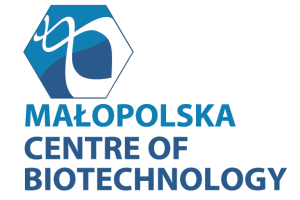Programme
Programme
The scientific program includes keynotes by leading researchers in the field (Prof Thomas Rattei and Prof Spiros Denaxas).
Schedule
Wednesday, 23 July 2025
| 11:20 | CAMDA Welcome & Overview | |
| 11:30 | CAMDA Keynote: Genome-based prediction of microbial traits | Thomas Rattei, University of Vienna, Austria |
| 12:20 | The Anti-Microbial Resistance Prediction Challenge - Introduction | Leonid Chidelevitch, Imperial College London, U.K. |
| 12:40 | A Hybrid Pipeline for Feature Reduction, and Ordinal Classification to Predict Antimicrobial Resistance from Genetic Profiles | Anton Pashkov, ENES Morelia UNAM, Mexico |
| 13:00 | Lunch | |
| 14:00 | Predicting Antimicrobial Resistance Using Microbiome-Pretrained DNABERT2 and DBGWAS-Derived Genomic Features | Jack Vaska, Stony Brook University, U.S.A. |
| 14:40 | The Antimicrobial Resistance Prediction Challenge | Alper Yurtseven, Helmholtz Institute for Pharmaceutical Research Saarland, Germany |
| 15:00 | Antimicrobial Resistance Prediction via Binary Ensemble Classifier and Assessment of Variable Importance | Owen Visser, University of Florida, U.S.A. |
| 15:10 | A Highly Accurate Workflow for Inference of Antimicrobial Resistance from Genetic Data Based on Machine Learning and Global Data Curation | David Danko, Biotia Inc, U.S.A. |
| 15:20 | The Gut Microbiome Health Index Challenge - Introduction | Kinga Zielińska, Małopolska Centre of Biotechnology of Jagiellonian University, Poland |
| 15:40 | Integrating Taxonomic and Functional Features for Gut Microbiome Health Indexing | Rafael Pérez-Estrada, Centro de Ciencias Matemáticas, UNAM, Mexico |
| 16:00 | Afternoon break with posters | |
| 16:40 | Building a Rare-Disease Microbiome Health Index: Integrating Gut Metagenomes, Synthetic PKU EHRs and Rare-Variant Profiles to Forecast Phenylalanine Crises | Khartik Uppalapati, RareGen Youth Network, U.S.A. |
| 17:20 | Toward the Development of a Novel and Comprehensive Gut Health Index: An Ensemble Model Integrating Taxonomic and Functional Profiles | Vincent Mel, University of Florida, U.S.A. |
| 17:40 | Topology-Enabled Integration of Taxonomic and Functional Microbiome Profiles Reveals Distinct Subgroups in Healthy Individuals | Doroteya Staykova, Multicore Dynamics Ltd, Bulgaria/U.K. |
| 17:50 | Ensemble-Based Topic Selection for Text Classification via a Grouping, Scoring, and Modeling Approach | Malik Yousef, Zefat College, Israel |
| 18:00 | 1st day summary | |
| 19:00 | Come Together: A Night of Networking & Fun | Punch Tarmey's |
Thursday, 24 July 2025
Keynotes
Prof Thomas Rattei
Head of the Division of Computational Systems Biology, Vice-head of the Department of Microbiology and Ecosystem Science,
University of Vienna, Austria
Keynote Title: Genome-based prediction of microbial traits
Abstract: The prediction of phenotypic traits from genomic information is an ongoing challenge in computational biology. Although the fundamental principles of information encoding in genomes have been studied since decades and allowed first directed modifications, the expression of phenotypic traits is often the result of complex interactions. Predictive approaches in bioinformatics therefore focus on machine learning from labeled genomic data.
During the last years, we have focused on the computational prediction of microbial phenotypic traits from metagenomic data. These data have been collected on large scale, to explore the diversity and composition of microbial communities and to correlate them with environmental factors (e.g. human health and disease). The prediction of traits for these millions of genomes, based on neural networks that use protein families as features, goes one step further and can be used in first applications.
About the speaker: Professor Thomas Rattei is a chemist by training. He is Professor for “In silico genomics” at the University of Vienna since 2010.
Thomas Rattei’s work covers a wide spectrum of topics from bioinformatics, genome and metagenome analysis and systems biology. He has long-standing expertise in developing and applying computational methods for the interpretation of large-scale sequence information. The international reputation of his research group triggered their involvement in numerous international (meta-) genome sequencing and analysis consortia.
Thomas’ research activities not only cover individual, project-specific questions but also general problems in bioinformatics, computational infrastructure, and large-scale biological databases. Furthermore, his group develops novel, genome-based computational approaches for studying molecular inter-species interactions, such as between hosts and pathogens, between symbionts, or in microbial ecosystems.
Thomas and his team maintain and develop internationally relevant resources in computational biology, such as the web portals phendb.org, vogdb.org and effectivedb.org for microbial trait prediction, virus orthologous groups and protein families, and bacterial secreted proteins and secretion systems.
Prof Spiros Denaxas
Professor of Biomedical Informatics
Institute of Health Informatics
University College London, U.K.
Keynote Title: Data, Diagnoses, and Discovery: Improving Healthcare through Electronic Health Records
Abstract:Electronic health records (EHRs) represent rich, multidimensional data generated through routine interactions within the healthcare system. These records have transformed biomedical research, shifting the traditional approach of studying diseases in isolation toward the simultaneous analysis of thousands of conditions. This talk will explore the unique opportunities and challenges that EHRs present to researchers and highlight best practices through examples.
About the speaker: Spiros Denaxas is Professor of Biomedical Informatics based at the Institute of Health Informatics and Associate Director at the British Heart Foundation Data Science Centre leading the Defining Disease work area. His research focuses on developing computational approaches for analyzing large-scale biomedical datasets in a reproducible manner.





























